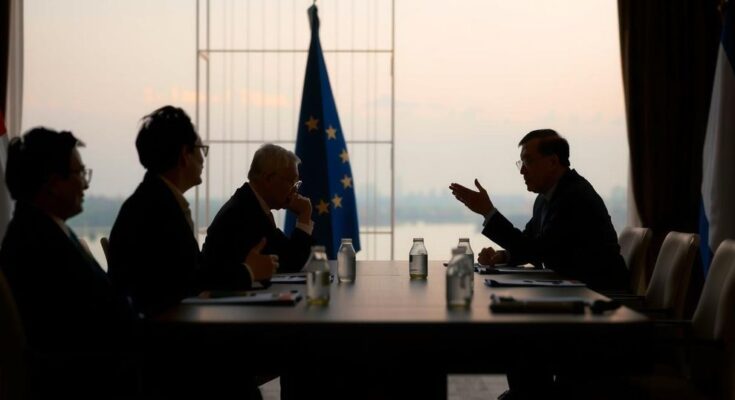Indonesia’s Trade Minister Zulkifli Hasan urged for the swift finalization of the IEU-CEPA, emphasizing the need for concessions from the EU after nine years of negotiations. Director General Djatmiko Witjaksono indicated unresolved policy issues could be shelved for later amendment to expedite agreement signing.
On September 26, 2024, Indonesia’s Minister of Trade, Zulkifli Hasan, called for the expedited finalization of the Indonesia-European Union Comprehensive Economic Partnership Agreement (IEU-CEPA). Negotiations for the IEU-CEPA have been ongoing for over nine years, and the Minister expressed concerns that the process may become increasingly complex under the new administration. He emphasized that while they seek a swift conclusion to the negotiations, the onus lies with the European Union to make concessions. Minister Hasan noted that considerable concessions had already been made by Indonesia to accommodate EU requests, which have led to frustrating delays as the EU has continued to introduce new demands. The Director General of International Trade Negotiation, Djatmiko Bris Witjaksono, shared that unresolved policy-level issues hinder the progress of the negotiation, particularly regarding the EU’s aspirations concerning Indonesia’s implementation of regulatory relaxations and deforestation laws. In light of the stalemate, Witjaksono suggested that Indonesia and the EU could consider prioritizing the signing of the agreement, with the understanding that subsequent amendments could be made to address those outstanding concerns. The urgency of concluding the IEU-CEPA was emphasized by Zulkifli Hasan, who clearly stated that postponements would only complicate future negotiations.
The Indonesia-European Union Comprehensive Economic Partnership Agreement (IEU-CEPA) has been a focal point of international trade discussions for nearly a decade. This agreement aims to enhance economic cooperation between Indonesia and the EU, addressing various sectors including trade, investment, and environmental policies. However, negotiations have consistently faced challenges, primarily due to differing regulatory expectations and evolving demands from the EU, causing frustration for Indonesian representatives who have made several concessions to reach a consensus. As Indonesia prepares for a change in leadership, there is increased pressure to finalize the agreement before potential shifts in political priorities complicate matters further.
In conclusion, the urgency expressed by Indonesia’s Trade Minister for the finalization of the IEU-CEPA highlights the ongoing challenges faced in international negotiations, particularly with the EU. Despite prior concessions, unresolved issues persist, leading to calls for a pragmatic approach that prioritizes the signing of the agreement with room for future adjustments. The coming weeks will be critical in determining the prospects for a successful conclusion to this long-standing negotiation.
Original Source: en.tempo.co




